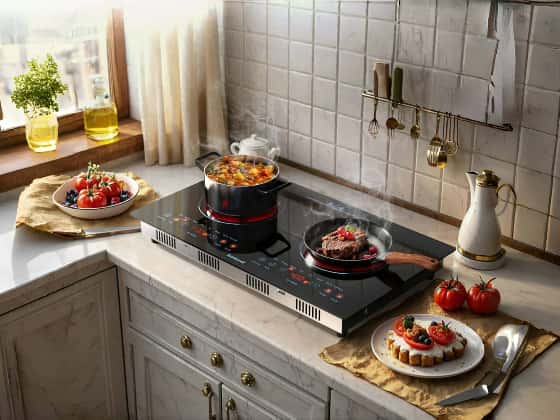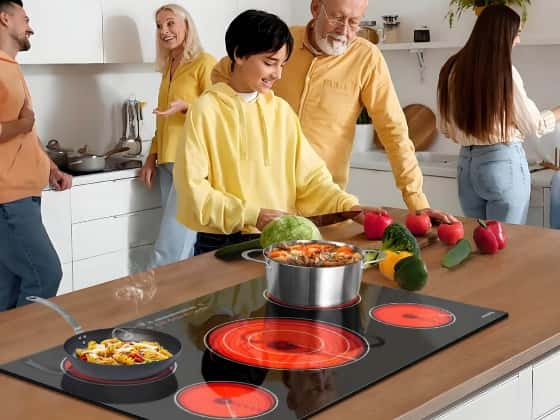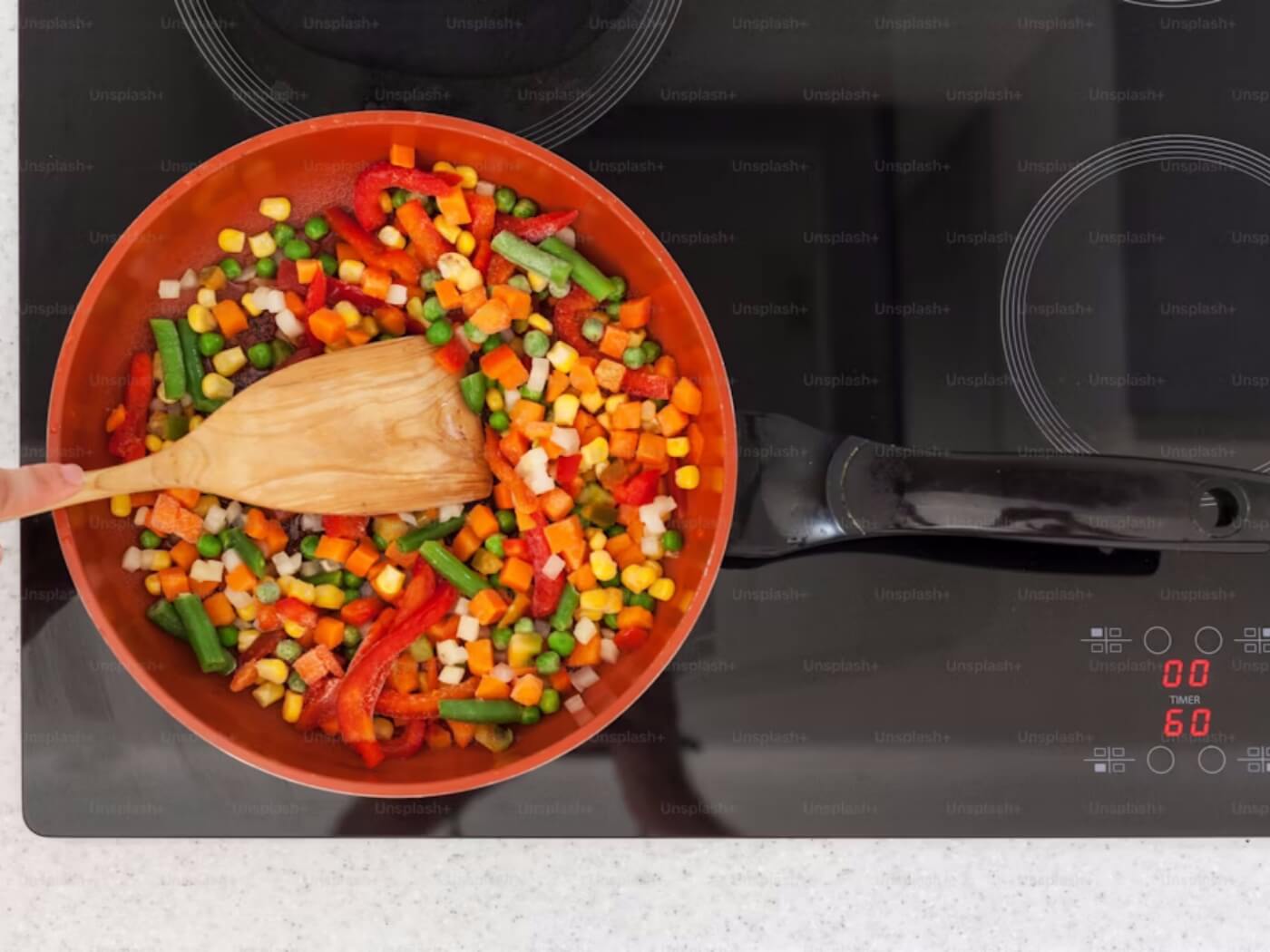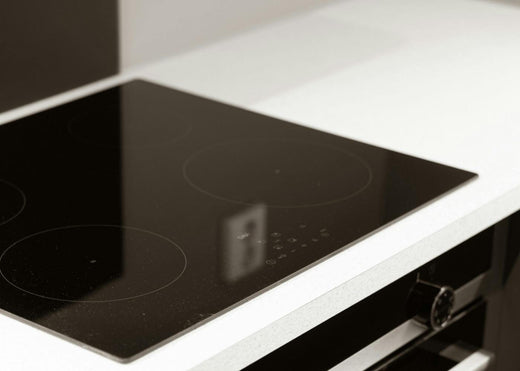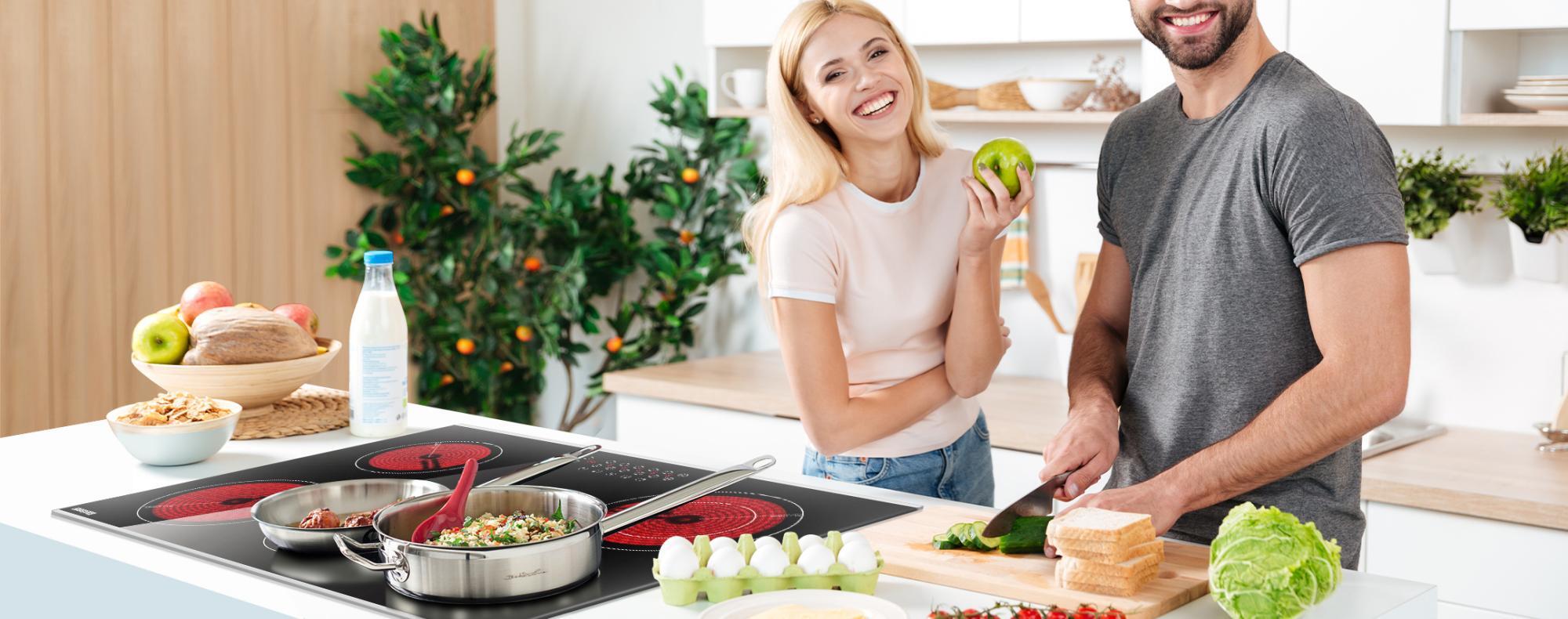
The extended heating zone, as the name implies, can enhance the cooktop area and power. Larger cookware allows you to cook more quickly, which is important for large gatherings and celebrations. So, how do I choose a pot with an appropriate expanded zone? Let's talk about it next.
Types of pots that work best with electric stoves
When it comes to choosing the best pots for the extended heating zone of an electric stove, it's crucial to consider the material, size, and shape of the cookware. Different materials have varying heat conductivity and retention properties, which can significantly impact their performance on the extended heating zone.
Stainless Steel Pots: Stainless steel is a popular choice for cookware due to its durability, ease of cleaning, and even heat distribution. However, it's important to note that not all stainless steel pots are created equal. Look for pots with an aluminum or copper core sandwiched between layers of stainless steel, as these materials enhance heat conductivity and ensure even cooking.
Enameled Cast Iron Pots: Cast iron is renowned for its excellent heat retention properties, making it an ideal choice for the extended heating zone. Enameled cast iron pots are particularly appealing as the enamel coating prevents rust and makes them easier to clean. These pots are perfect for keeping dishes warm for extended periods without the risk of overcooking.
Ceramic Pots: Ceramic cookware has gained popularity in recent years due to its non-reactive and eco-friendly properties. While ceramic pots may not be the best conductors of heat, they excel at retaining heat once heated, making them suitable for use on the extended heating zone. Look for ceramic pots with a thick base for better heat distribution.
Aluminum Pots: Aluminum is an excellent conductor of heat, which makes it a great choice for the extended heating zone. However, it's important to note that aluminum can react with acidic foods, so these pots may not be suitable for dishes with tomatoes, citrus, or vinegar. Additionally, aluminum pots can discolor over time, so they may require more frequent replacements.
Tips for using pots with the extended heating zone effectively
Use Lids: Covering your pots with lids can assist preserve heat and moisture, keeping your meals from drying out or overcooking. Look for pots with tight-fitting lids that form a seal and keep the heat and flavors inside.
Rotate Dishes: If you're keeping several dishes warm on the extended heating zone, make sure to rotate them on a regular basis. This guarantees that all dishes receive equal heat exposure and that no one dish becomes too hot or too cold.
Monitor Temperature: Although the longer heating zone is intended to keep dishes warm, it is still necessary to check the temperature on a frequent basis. Use a food thermometer to check that your dishes remain within the required temperature range, which is usually between 140°F and 165°F (60°C to 74°C).
Preheat Pots: Before placing your dishes in the extended heating zone, preheat the pots to a higher temperature. This will help the pots retain heat more effectively, keeping your dishes warm for longer.
Avoid Overcrowding: Although the extended heating zone can hold numerous pots, it is critical not to overcrowd the space. Leaving space between pots improves heat circulation and minimizes uneven heating or hot patches.
Conclusion
The key to success is to understand the distinct qualities of various pot materials, as well as their heat conductivity and retention capabilities. By combining the correct cookware with the strategies and practices indicated in this article, you'll be well on your way to becoming an expert in the extended heating zone.

